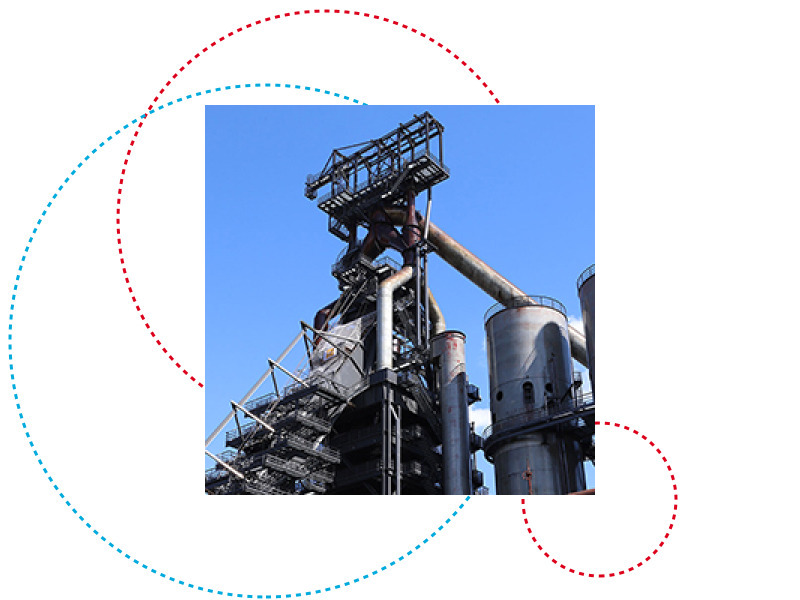Online workshop organised by the C²DH’s ‘Remixing the Industrial Pasts’ team.
The history of (European) industrial cities is often told as a tragic tale of rise and decline: from rapid industrialisation in the late 19th century and economic prosperity during the Trente Glorieuses to the structural changes of the late 1970s and the subsequent deindustrialisation of the 1980s and 1990s. In the 1980s and ‘90s, most mines and iron and steel works closed down, unemployment rates went up, new social problems emerged, workers’ identities seemed to erode, and once prosperous urban centres were faced with a shrinking population and empty stores on their main shopping streets. Finally, since the 2000s, the former steel towns have tried to reinvent themselves as creative and cultural centres. But if we take a closer look, we can see that the transitions were more complex than the simple rise-and-decline narrative suggests. The workshop aims to zoom in on the history of industrial towns in Western and Eastern Europe to improve our understanding of how the people who lived in these industrial territories made sense of the developments outlined above. We are interested in the manifold narratives and counter-narratives of these industrial towns and cities.
If you would like to participate please send an email to vanessa.napolitano@ext.uni.lu.
Programme
Thursday, 10 December 2020
09.00
Welcome and introduction of participants
10.30
Panel 1: Micro-meso-macro: changing the scales of analysis
Chair: Valérie Schafer
A Missionary from Fascist Italy in the Industrial City of Esch (Luxembourg): Don Flavio Settin and his Itinerary in Europe before and after 1914
Romain Bonnet (European University Institute of Florence (EUI))
Young Workers, Housing and Local Bureaucratic Compromises in the 1970s Romania: A Glimpse of the Industrial Neighborhoods of Cluj
Mara Marginean (Romanian Academy, Cluj)
Taranto: rise and fall of an industrial city in Southern Italy
Salvatore Romeo (free researcher/University of Verona)
12.00
(Offline) Lunch break
13.30
Panel 2: Coping with the decline of industrial cities
Chair: Denis Scuto
Le monde ouvrier du bassin de Longwy face aux restructurations de l’industrie sidérurgique (dernier quart du vingtième siècle)
Théo Georget (University of Lorraine, CRULH, Nancy-Metz)
The end of solidarity? Deindustrialization in Lens (F) and Gelsenkirchen (D)
Julia Wambach (Centre Marc Bloch, Berlin)
Interpreting and Coping with De-Industrialization: Churches as Urban Actors in Manchester in the 1970s and 80s
Sara Thieme (University of Münster)
15.00
Break
15.15
Panel 3: Transformations of (post) industrial cities
Chair: Christoph Brüll
The decline and legacy of Spanish industrial cities. A comparison between the urban regeneration processes of Barcelona and Bilbao
Federico Camerin (University of Valladolid)
Memory, Heritage and the Post-Steel City: The Transformation of Sheffield Since 1990
Chris Corker (University of York) & James Fenwick (Sheffield Hallam University)
The Classic Slum? Civic Identities, Cultural Dissonance and the Remaking of Salford
Carole O‘Reilly (Salford School of Arts, Media and Creative Technology)
17.00
Breakout sessions
17.30
End of day 1
Friday, 11 December
09.00
Panel 4: Lifestories, memories and identities
Chair: Werner Tschacher
Digital unter Tage – (Data) Mining Lifestories and Social Culture in the Ruhr Area
Dennis Möbus (University of Hagen)
Between the Factory and the City – Contributions to a Cultural History of Work in the Setúbal region
João Pedro Santos (NOVA University Lisbon)
Understanding industrial change and imagining the future in late-1960s Tyneside
Matt Beebee (University of Exeter)
Exploring Identity and Work in Transition: The Case of Coal-Miners from the Ostrava Coal Basin in the Czech Republic
Nicole Horáková (University of Ostrava)
11.15
Breakout sessions
12.00
(Offline) Lunch break
13.00
Panel 5: Industrial heritage, arts and media
Chair: Karin Priem
Genèse d’une valorisation des archives industrielles lorraines : le projet mémoires d’images de l’association Image’Est
Nadège Mariotti (INSPE – Université de Lorraine, IRCAV – Sorbonne Nouvelle Paris Cité)
Working-Class Memories and legacies of Deindustrialization through cultural creation in Asturias – Spain
Irene Díaz (University of Oviedo)
14.00
Commentary and closing remarks by Sebastian Haumann (University of Darmstadt)
15.00
End of the workshop
